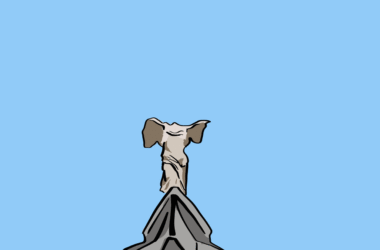The Science Undergraduate Society will hold its first General Assembly on Feb. 29. The list of motions, while not yet finalized, will include one motion opposing tuition increases and another concerning the formation of a strike committee similar to the motion presented at the AUS GA on Jan. 31.
Akshay Rajaram, president of SUS, said the “special GA” came about as a result of a petition signed by 125 science students and submitted to the speaker of SUS Council, Matthew Dolson, by a group called the “Science Mobilization Committee.”
Several science students opposing tuition increases formed the Science Mobilization Committee to rally other science students behind the issue. At the GA, Committee members will present the above motions condemning tuition hikes and forming the strike committee.
“People who are currently in school are probably not likely to drop out because of the tuition hikes, but they will certainly have to pay more and it will prevent people who are looking to attend university from being able to do so,” Aidan Drake, a member of the Mobilization Committee and a mover of the strike committee motion, said.
His motion was based on the AUS strike committee motion, but noted some wording changes, such as using the term to “inform” rather than to “educate” students about tuition increases. Additionally, the motion features a clause enabling the strike committee to organize strike activities if a motion to strike passes at a strike-specific GA, which would have a quorum of 500 undergraduate science students.
The committee would be non-hierarchical, feature no formal positions, and would require a “basis of unity” from members both in ideology (the opposition of tuition hikes and belief in moving towards a strike) and methodology (a non-hierarchical, non-oppressive organization).
The concept of a “basis of unity” was an object of much discussion at the AUS GA, some believing it gave way to bias in disseminating strike information and possible consequences.
Drake said he opposed an amendment creating a separate committee, as was proposed at the AUS GA, because of a lack of a clear mandate. He said he feels it is a separate issue and requires its own motion.
“If you have it in the same motion, that motion is doing more than one thing,” he said.
Kevin Liang, president of the Freshman Undergraduate Science Society (FUSS), which represents U0 science students to SUS, said that SUS does not want the science faculty to take a stance.
“It wants to be politically neutral,” Liang said.
Liang was still undecided on the issue. Most science students, he thought, also felt this way.
“I feel like for science, we’re not as involved in the political actions of McGill as [is] arts,” he said.
“SUS council hasn’t taken a position regarding the tuition increases for Quebec students or the strike proposals,” Rajaram, who could not comment on his expectations of the debate, said.
Besides the tuition increases and a strike committee to oppose them, there is little else that will be discussed at the General Assembly.
“The arts and science committee wanted their own seat [on SSMU Council],” Liang noted. “Right now it’s just the arts seats and the science seats.”
There has been little publicity for presenting motions to the GA. Drake claims this is due to the little publicity provided for the GA itself, stemming from a current lack of venue.
As of Feb. 5, there had been no mention of the GA or motions in any science listserv.
The GA will run according to Roberts Rules of Order, with an amendment specifying that no additional motions from the floor will be considered. The location remains to be determined. Students who have at least 100 signatories may submit a motion by Feb. 15.
“I would encourage other groups to put motions forward: that’s what the democratic process is for. That’s why we have GAs,” Drake said.





